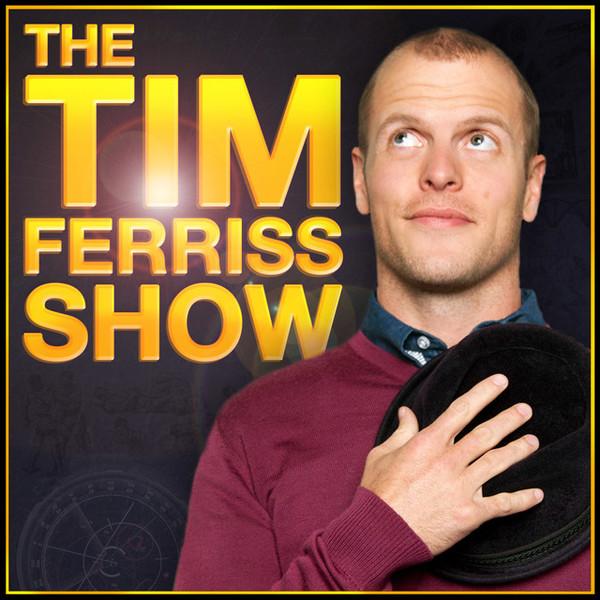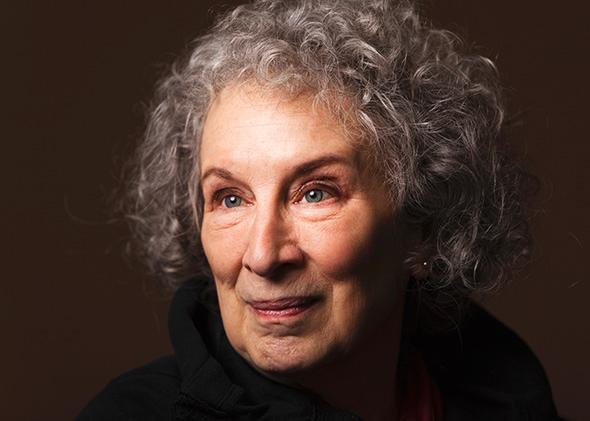#573: Margaret Atwood — A Living Legend on Creative Process, The Handmaid’s Tale, Being a Mercenary Child, Resisting Labels, the Poet Rug Exchange, Liminal Beings, Burning Questions, Practical Utopias, and More
Curated from: The Tim Ferriss Show
Ideas, facts & insights covering these topics:
9 ideas
·1.77K reads
14
Explore the World's Best Ideas
Join today and uncover 100+ curated journeys from 50+ topics. Unlock access to our mobile app with extensive features.
How Are Poetry and Prose Different?
When Margaret started writing, it was open season for her
Nobody was there to tell her what to do; there were no writing schools. She wrote both poetry and prose
Novels are 10% inspiration and 90% perspiration. Writing novels is work, you have to put in the hours
For poetry, it’s the opposite poets get caught in the moment of inspiration. Poetry is more likely written on the fly.
Poetry comes from the part that is linked to the patterning of music and mathematics.
Novels come from the part that is associated with narrative and telling stories. Epic poetry is similar to novels, unlike lyric poetry.
14
256 reads
You don’t know when something may strike you and that’s why poets are so annoying to people who are not poets
MARGARET ATWOOD
17
264 reads
What Keeps Her Going?
Margaret Atwood is 82 years young. Is longevity determined by genetics? Margaret’s mom lived to 97.
Curiosity is a big factor; her parents were always curious. She is curious about new technologies. She is also a big fan of astrology, she reads palms and does horoscopes.
She got into it while studying English literature (she was a Victorianist). Astrology was an integral part of the Renaissance worldview (many astrological symbols in arts and literature)
15
210 reads
I always want to know what’s the upside, what’s the downside, cost-benefit, but also what are people using this for?
MARGARET ATWOOD
15
233 reads
What Makes Margaret Good at Speculative Fiction?
Margaret was always an avid reader and she read a lot as a teenager in the 50s. What you read as a teenager has the biggest influence when you start writing
She wanted to write something like 1984, but with women, It’s all about the people you are drawn to and the skills you have at the moment.
Growing up in a cabin in the woods, When it rained, she read. There was nothing to do when it was raining, except reading, writing, and drawing
There was a strong focus on family narrative in their household; they told stories of their shared past and extended family. Her first novel was about an ant.
14
171 reads
Resisting “Closed Boxes”
Nature does not deal in closed boxes. Everything in nature is on a bell curve, some forms cannot be put into closed boxes (liminal beings) e.g. the platypus
We all contain multitudes; just because Margaret is a woman and a writer, it doesn’t mean that’s the end of the story.
People label other people, and then they attack the label. You can put a general heading over anything; people can share many similarities, but in the end, no one is exactly like you.
When you get attached to labels, they become an important facet of your identity. Living in a multiple democracy calls for going beyond labels
16
154 reads
Reading dystopian fiction, we know we’re capable of really awful things, we’re also capable of really pretty wonderful things. And we’re smart and inventive
MARGARET ATWOOD
17
186 reads
A Connoisseur of Dystopian Speculative Fiction
Hope is built on a very fundamental level
How to find hope in the face of the climate crisis?. The climate crisis is real, but we are inventing a lot of new things. We are looking at the problem, and coming up with answers. The 19th century was a century of utopias: “They wrote a lot of them because they had made so many improvements already in the 19th century, that they thought, ‘This is just going to go on, and it’s going to get better and better and better.'
Why don’t we write more about utopias?
People are writing dystopias; why not imagine a better world instead?
14
141 reads
Making a LEGO Village (Practical World-Building)
“Practical Utopias” is on DISCO (an interactive live learning platform)
With DISCO, you have the tools to do your own live learning experience.
“Practical Utopias” is a problem-solving enterprise
- Practical world-building: What to eat? What to wear? What houses will we live in?
- “Did you know you can make bricks out of mushrooms?
- “Would you like to have a mushroom coffin?”
- “Do you know you can 3D print houses out of compressed earth in two days?”
“Practical Utopias” is bringing all of these ideas together, with an aim for a cheap, scalable, green solution.
15
164 reads
IDEAS CURATED BY
Bobby Boy's ideas are part of this journey:
Learn more about motivationandinspiration with this collection
Understanding the importance of constructive criticism
How to receive constructive criticism positively
How to use constructive criticism to improve performance
Related collections
Similar ideas
Read & Learn
20x Faster
without
deepstash
with
deepstash
with
deepstash
Personalized microlearning
—
100+ Learning Journeys
—
Access to 200,000+ ideas
—
Access to the mobile app
—
Unlimited idea saving
—
—
Unlimited history
—
—
Unlimited listening to ideas
—
—
Downloading & offline access
—
—
Supercharge your mind with one idea per day
Enter your email and spend 1 minute every day to learn something new.
I agree to receive email updates



